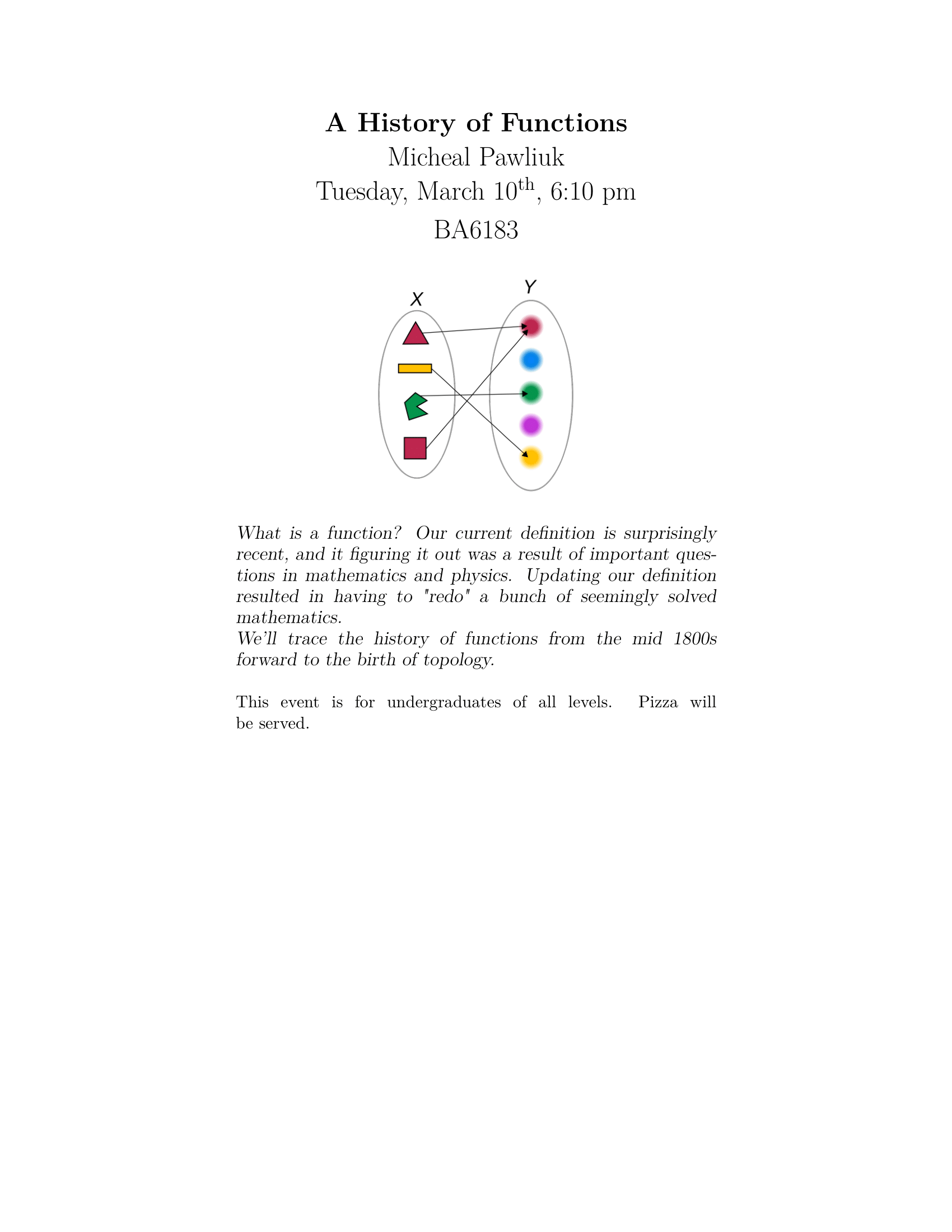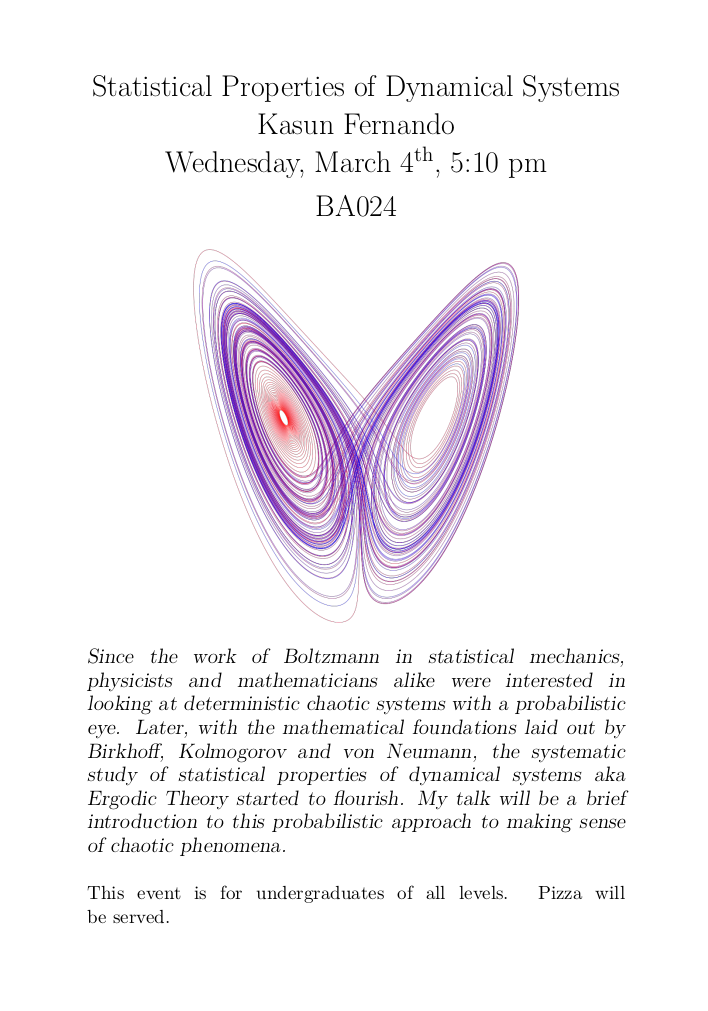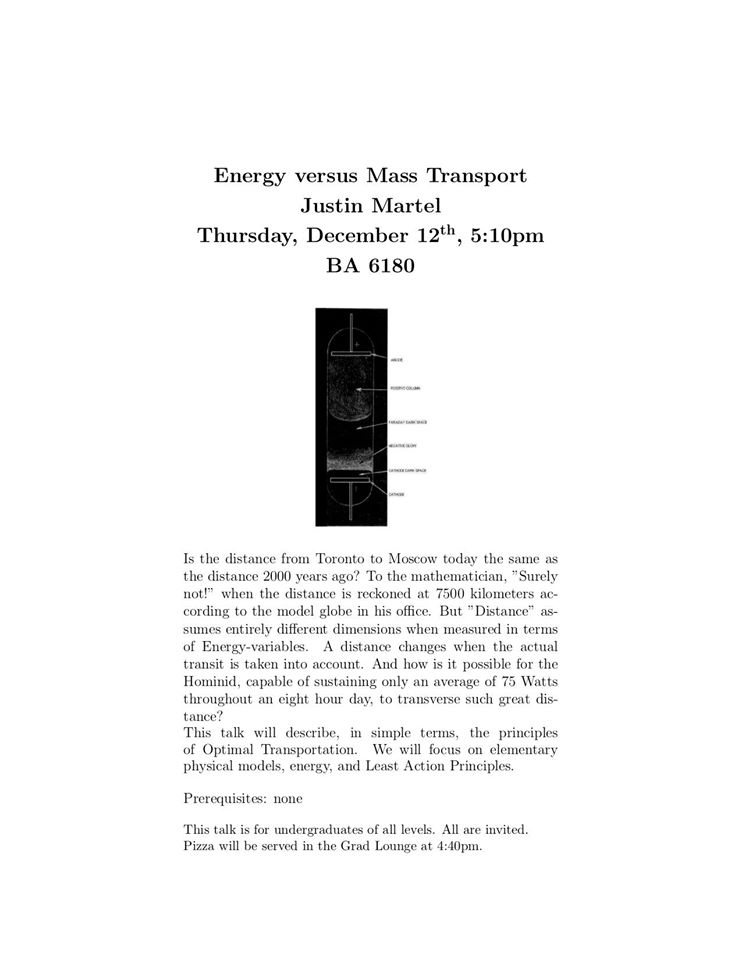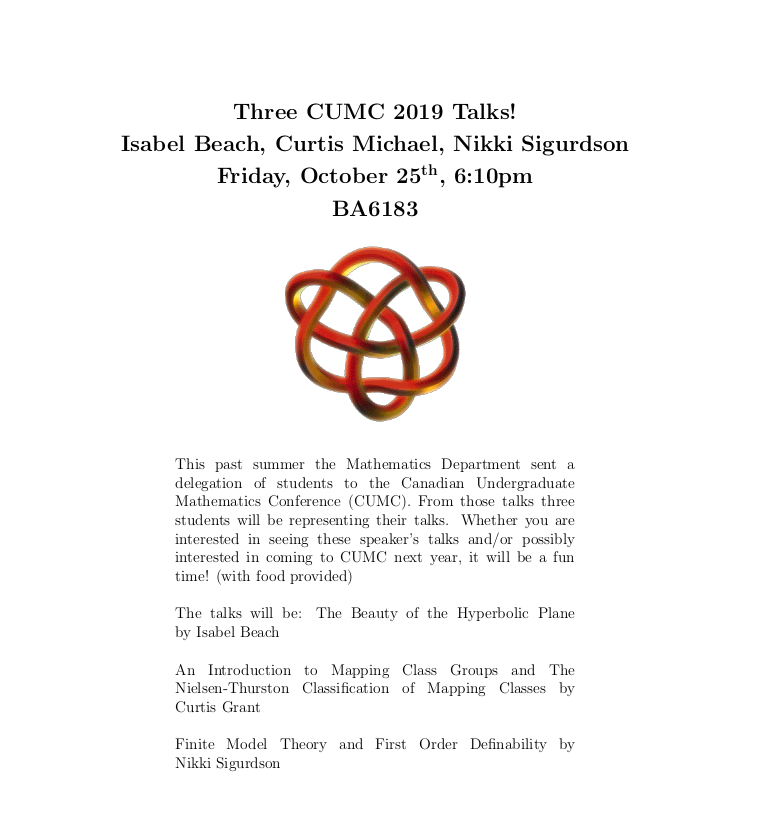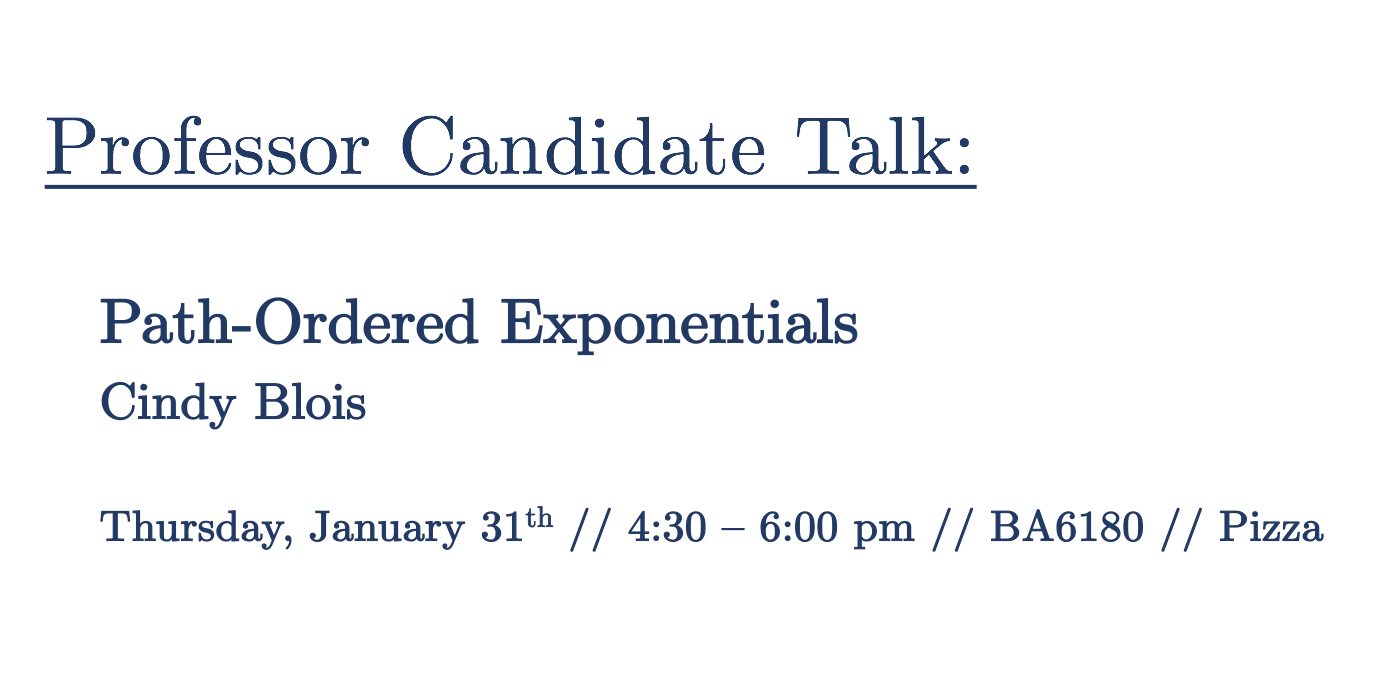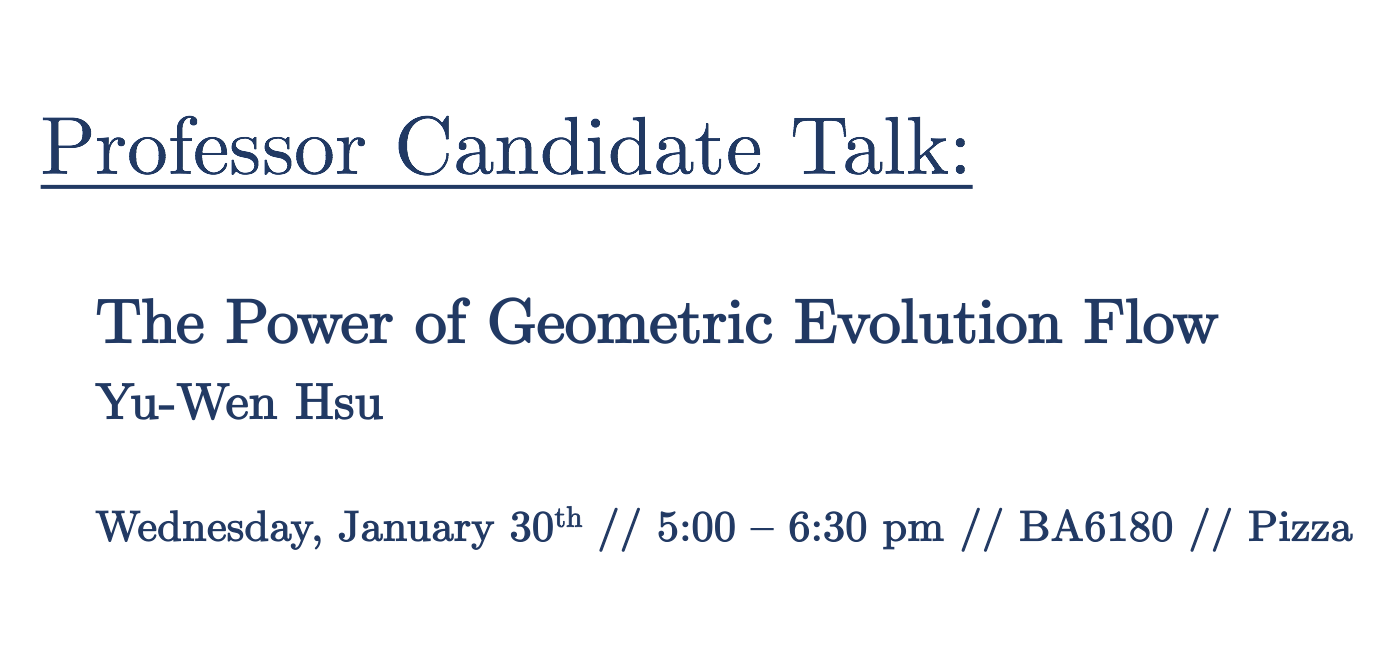The Canadian Undergraduate Mathematics Conference (CUMC) is an annual conference for mathematics undergraduates in Canadian universities.
To help you prepare talks for this year’s conference, we will be holding a series of workshops between the 28th of June and the 30th of July.
Registration: If you would like to attend any of these sessions, please fill out the following form to join our mailing list. https://forms.gle/avxKNm9ziNPZotXE6 (Zoom links to all events will only be available to people on the list.)
Please check this page for updates!
I – Workshops
Professor Micheal Pawliuk (UTM) will be running the following three workshops:
Note: The following workshops will be recorded. Please make sure to join our mailing list if you would like access to the recordings.
Monday June 28th at 3 PM EDT (Toronto time) – What to expect at the CUMC.
This workshop will feature a panel of students who have previously been to the CUMC. They will share their experiences and you will be able to ask questions. By the end of this workshop, participants should be able to:
- Describe the format and participants of the CUMC.
- List common expectations for the conference (dress code, what kind of talks are appropriate, who gives talks, etc.)
Monday July 5th at 3 PM EDT (Toronto time) – Coming up with a good presentation topic.
This workshop will focus on coming up with good ideas for presentations at the CUMC. By the end of this workshop, participants should be able to:
- Create multiple appropriate presentation topics for the CUMC. Create learning objectives for a presentation.
- Refine a given topic to be memorable and engaging.
Professor Pawliuk is also happy to give advice and feedback by email to students who don’t know what they want to present! You can contact him at:
m [dot] pawliuk [at] utoronto [dot] ca
Monday July 12th at 3 PM EDT (Toronto time) – Making a good 20-minute video presentation.
This workshop will focus on creating good 20-minute video presentations for the CUMC. It will be primarily “low tech” in that it will focus on making effective, memorable presentations because of the fundamentals of good presentations (and not just fancy editing). By the end of this workshop, participants should be able to:
- Modify a presentation based on audience, learning objectives, and personal preference.
- Create a video presentation in multiple ways and adjudicate their appropriateness.
These workshops will be beginner friendly, and you can attend any of them even if you do not plan on attending the CUMC!
II – Peer-Feedback Sessions
The second set of activities will consist of peer-feedback sessions. Interested participants will be sorted into groups of three or four (each group containing at least one experienced presenter) to share their talks and give each other feedback. We will send out a registration form for the peer-feedback sessions after the workshops. Please make sure to join the mailing list if you wish to receive this form!
You do not need to have a complete presentation to take part in these peer-feedback sessions: the group discussions can also be used to chat about your abstracts, or to go over the outlines of your presentations, for example.
Details will be sent on July 16th so that you can meet between the 19th and 30th of July. Groups will need to schedule their own meetings during this time.
We will try to match people from different schools together wherever possible, keeping in mind your availabilities and presentation topics.
III – Mock Conference
About a week before the CUMC, we will have a small mock conference for participants to practice their talks. Last year, this mock conference had both asynchronous and synchronous components. We asked participants to submit video recordings of their talks ahead of time, and we hosted live Q&A sessions with the presenters.
How the mock conference will work this year will depend on how many interested students we have. Due to time limitations, capacity for this event may have to be capped, with priority going to UofT students.
Contact: If you have any questions, please contact Yuveshen Mooroogen at yuveshen [dot] mooroogen [at] mail [dot] utoronto [dot] ca.

